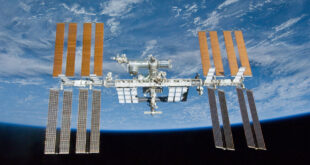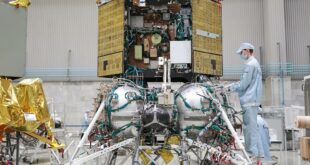
The cost of launching a new Russian carrier rocket Amur powered by methane with a reversible first stage and without an upper stage will reach $22 mln, according to the tender documentation for a new rocket published on the government procurement website on Friday. Meanwhile, the materials specified that the cost of launching the rocket without landing the first stage unit and reusing it and without using an upper stage, which allows satellites to be launched, for example, into geostationary orbit, should not exceed $30 mln. Without returning the first stage, but with an upper stage – below $35 mln.
Sources in the space industry told TASS earlier that Roscosmos Space Corporation approved the technical assignment for the rough design of a new space rocket powered by liquefied natural gas (methane) and liquid oxygen. “Roscosmos approved the technical assignment for the creation at Vostochny spaceport of a medium-class rocket powered by liquefied natural gas and liquid oxygen,” one source said. The other source confirmed the information and added the R&D is called Amur-SPG. “A contract has to be signed in the coming months and all technical details will be made public after that,” he said.
The project envisages a reusable first stage which will be landed by engines. Design-to-cost principle will for the first time be used in the Russian space industry which means design in compliance with the final cost. The launch cost will be calculated according to the global trends in the launch market.
 SpaceWatch.Global An independent perspective on space
SpaceWatch.Global An independent perspective on space




